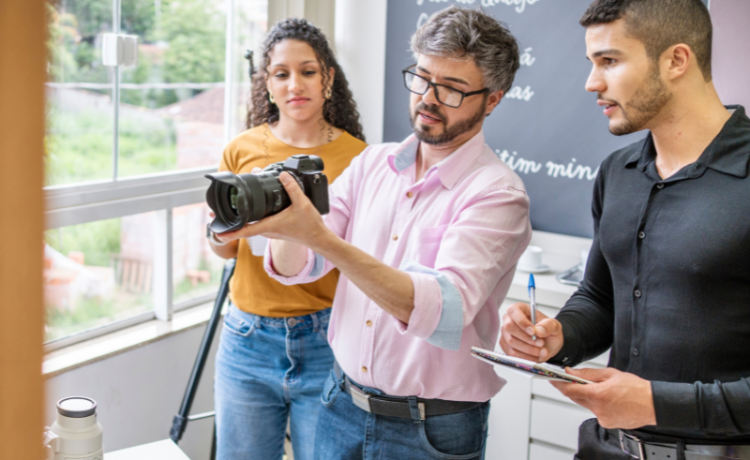Photography courses provide aspiring photographers with the skills and techniques needed to capture stunning images. They teach everything from mastering composition to advanced photo editing. However, the process of learning photography raises several ethical dilemmas that are not always discussed. Issues like respecting privacy, environmental sustainability, and avoiding exploitation are significant considerations for both instructors and students.
Whether you’re considering a photography course in Singapore or searching for the best photography course for beginners, understanding these ethical challenges is essential. This article delves into the ethical dilemmas surrounding photography courses and why addressing them is important.
1. The Fine Line Between Inspiration and Plagiarism
Photography education involves studying iconic images and photographers’ work. While this practice can inspire creativity, it also creates a risk of crossing the line into plagiarism. Students may unknowingly replicate styles or ideas without giving proper credit. It’s vital for a photography course for beginners to teach the importance of originality and intellectual property rights. This includes understanding copyright laws and how to draw ethical boundaries while using others’ work for inspiration.
2. The Ethics of Street Photography
Street photography, a favourite genre among students, involves capturing candid moments in public spaces. However, this practice raises significant ethical concerns about privacy and consent. For instance, photographing individuals without their knowledge can infringe on their rights, especially in sensitive situations. The best photography courses in Singapore address these dilemmas by teaching students how to engage ethically, seek consent when necessary, and approach street photography with respect for their subjects.
3. Environmental Responsibility During Location Shoots
Outdoor photography is integral to many courses, as it allows students to experiment with natural light, landscapes, and wildlife. However, these activities can disrupt ecosystems, damage fragile environments, or leave waste behind. For instance, group shoots in national parks may inadvertently harm local flora and fauna. A responsible photography course in Singapore will educate students on how to minimise their environmental impact by respecting nature, cleaning up after shoots, and following local regulations.
4. Authenticity vs. Manipulation in Editing
Modern photography relies heavily on editing software to enhance or alter images. While these tools are powerful, they come with ethical concerns. Excessive manipulation can distort reality, mislead audiences, or compromise journalistic integrity. For example, altering the appearance of a subject in portrait photography might create unrealistic expectations. A comprehensive photography course should teach the ethical use of editing tools, ensuring students balance creativity with authenticity in their work.
5. Cultural Sensitivity in Subject Matter
Photography often explores diverse cultures, traditions, and lifestyles. However, without proper understanding, students may unintentionally exploit or misrepresent their subjects. For instance, photographing a cultural ritual without context can perpetuate stereotypes or disrespect local customs. The best photography courses include lessons on cultural sensitivity, teaching students how to approach different subjects with respect, engage meaningfully, and provide accurate representations.
6. Inclusive Representation in Visual Storytelling
Photography has a powerful influence on shaping societal narratives. Unfortunately, many courses still lean towards traditional or Eurocentric ideals of beauty and creativity, limiting diverse perspectives. Aspiring photographers must challenge these norms and embrace inclusive storytelling. A well-structured photography course in Singapore will emphasise the importance of equity in representation, encouraging students to reflect diverse realities and dismantle biases through their work.
7. Balancing Commercial Goals with Ethical Artistry
As students progress in their photography journey, they often face the dilemma of prioritising commercial success over personal ethics. For instance, the demand for heavily staged or unrealistic images may conflict with an individual’s artistic vision or values. Photography courses should equip students with the tools to navigate these challenges, helping them balance client expectations with their principles. A well-rounded course fosters creativity while encouraging students to maintain their ethical boundaries.
8. Accessibility and Fair Learning Opportunities
Accessibility is another ethical concern in photography education. The cost of enrolling in a photography course in Singapore, purchasing gear, or attending workshops can exclude talented individuals from lower-income backgrounds. Ethical courses strive to make learning opportunities available to all by offering scholarships, equipment loans, or online resources. This inclusivity not only broadens participation but also enriches the diversity of perspectives in the field.
Conclusion
Photography courses open doors to creativity and technical mastery, but they also present ethical dilemmas that demand attention. From respecting intellectual property and cultural sensitivities to ensuring inclusivity and environmental responsibility, aspiring photographers must learn to approach their craft thoughtfully. By choosing the best photography course that prioritises ethical practices alongside skill development, students can cultivate not only their artistic talents but also their responsibility as visual storytellers.
Take your photography skills to the next level while learning ethical practices. Contact OOm Institute to know how to become a responsible, impactful photographer.







